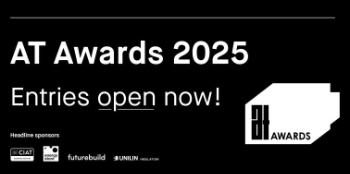Motivation theories
Theories of motivation refer to the various explanations and models that attempt to understand why people behave in certain ways and what drives them to achieve certain goals or outcomes. Some of the most well-known theories of motivation include:
Maslow's Hierarchy of Needs: This theory proposes that people have a hierarchy of needs, starting with basic physiological needs (such as food and shelter) and moving up to higher-level needs such as self-actualisation and self-esteem.
Herzberg's Two-Factor Theory: This theory suggests that there are two sets of factors that motivate people: hygiene factors (such as salary and working conditions) that prevent dissatisfaction and motivation factors (such as recognition and personal growth) that lead to satisfaction.
Expectancy Theory: This theory proposes that people are motivated to act based on their expectations of the outcomes that will result from their actions. This includes their belief in their ability to perform the task and the value they place on the outcome.
Equity Theory: This theory suggests that people are motivated by a desire for fairness and equity. This means that individuals compare their inputs (such as effort and time) and outputs (such as rewards and recognition) to those of others in the organisation.
Goal-Setting Theory: This theory proposes that people are motivated by setting specific, challenging goals and receiving feedback on their progress toward those goals.
Self-Determination Theory: This theory suggests that people are motivated when they have a sense of autonomy, competence, and relatedness. Autonomy refers to the ability to make choices and control one's own destiny, competence refers to the ability to perform tasks successfully, and relatedness refers to the sense of connection with others.
These are just a few of the many theories of motivation that exist. Each theory has its own strengths and weaknesses and can be applied in different situations depending on the context and the individuals involved.
[edit] Related articles on Designing Buildings
- Adaptability.
- Adaptation.
- Collaborative practices for building design and construction.
- Construction organisations and strategy.
- Emotional Intelligence in Construction.
- Intergovernmental Panel on Climate Change.
- Leadership styles.
- Relationship management.
- Team behavioural roles.
- Team building.
[edit] External links
Featured articles and news
Editor's broadbrush view on forms of electrical heating in context.
The pace of heating change; BSRIA market intelligence
Electric Dreams, Boiler Realities.
New President of ECA announced
Ruth Devine MBE becomes the 112th President of the Electrical Contractors Association.
New CIAT Professional Standards Competency Framework
Supercedes the 2019 Professional Standards Framework from 1 May 2025.
Difficult Sites: Architecture Against the Odds
Free exhibition at the RIBA Architecture Gallery until 31 May.
PPN 021: Payment Spot Checks in Public Sub-Contracts
Published following consultation and influence from ECA.
Designing Buildings reaches 20,000 articles
We take a look back at some of the stranger contributions.
Lessons learned from other industries.
The Buildings of the Malting Industry. Book review.
Conserving places with climate resilience in mind.
Combating burnout.
The 5 elements of seiri, seiton, seiso, seiketsu and shitsuke.
Shading for housing, a design guide
A look back at embedding a new culture of shading.
The Architectural Technology Awards
The AT Awards 2025 are open for entries!
ECA Blueprint for Electrification
The 'mosaic of interconnected challenges' and how to deliver the UK’s Transition to Clean Power.
Grenfell Tower Principal Contractor Award notice
Tower repair and maintenance contractor announced as demolition contractor.






















